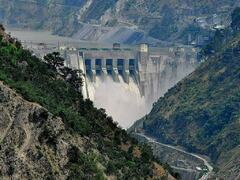Indus Waters Treaty Unlikely to be Unilaterally Scrapped by India
ISLAMABAD: It is improbable that India will unilaterally revoke the Indus Waters Treaty (IWT), which was facilitated by the World Bank (WB), despite current tensions between the two nations.
Sources familiar with the matter have dismissed unverified reports suggesting that New Delhi might unilaterally cancel the Indus Waters Treaty as mere speculation. They emphasized that neither Pakistan nor India possesses the authority to unilaterally terminate the agreement, which was brokered by the World Bank.
The Indus Waters Treaty, an accord between India and Pakistan, was arranged and negotiated by the WB for the purpose of allocating the water resources of the Indus River and its tributaries. The treaty was signed in Karachi on September 19, 1960, by the then-Prime Minister of India, Jawaharlal Nehru, and the then-President of Pakistan, Field Marshal Ayub Khan.
The Treaty grants India control over the waters of the three “Eastern Rivers”—the Beas, Ravi, and Sutlej—located within India, which have a mean annual flow of 41 billion cubic meters (33 million acre-feet). Conversely, Pakistan is granted control over the waters of the three “Western Rivers”—the Indus, Chenab, and Jhelum—also located in India, which have a mean annual flow of 99 billion cubic meters.
India receives approximately 30% of the total water carried by the Indus Rivers System situated in India, while Pakistan receives the remaining 70%.



Comments (0)
No comments yet. Be the first to comment!
Leave a Comment